Intermittent Fasting FAQ –
- Do I have to fast every day? Is it okay to miss some days?
- Are there are types of schedules like every other week or alternate day?
- Is the 5:2 fast diet similar to intermittent fasting?
- Can I be on keto for intermittent fasting? Is it better or worse?
- Can I drink beverages during the fasting period?
- Is there any way to not skip breakfast? I get my daily energy kickstart from it!
- Does gender matter?
- Aren’t we supposed to eat every few hours?
- Is there an intermittent fasting community or other resource I can read up on?
1. Do I have to fast every day? Is it okay to miss some days?
Of course! Just because you can’t do it every day, doesn’t mean you shouldn’t do it at all. The more you can do the better, but some is better than none!
Some people fast weekdays and take a break on the weekends. If it’s easier for you to fast on weekends, by all means, do that! Everyone’s life is different and we can’t all keep to the same schedules. Figure out what schedule works best for you and stick to it!
4-Week Keto Meal Plan
- 4 Weeks of Delicious Keto Recipes!
- Leftovers and Bulk Preps Included
- Maximize Your Keto Diet's Success
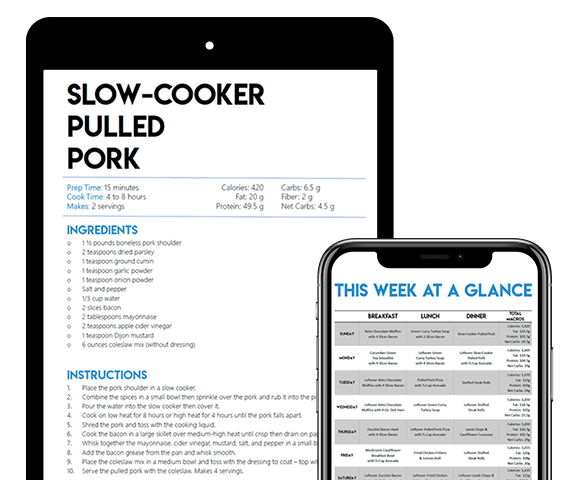
2. Are there are types of schedules like every other week or alternate day?
There are various types of schedules including alternate day, alternate week and more.
- Alternate day – usually include longer periods of eating on one day and then extremely long breaks on the next. For example:
- Eating – 8am to 8pm (12 hour period)
- Fasting – 8pm to 8pm (24 hour period)
- Eating – 8pm to 12am (4 hour period)
- Fasting – 12am to 8am (8 hour period)
- Start over
- Alternate week – is done by eating normally with no scheduling one week and scheduling another. It is no different than scheduling three out of four days a week and not scheduling the rest. If it works for you, great! I would still recommend intermittent fasting every single day, but if it’s not possible, then as many times a week is very good.
3. Is the 5:2 fast diet similar to intermittent fasting?
The 5:2 diet involves restriction of calories for 2 days of the week non-consecutively and eating normally the other 5 days. This diet/fast hybrid doesn’t have much evidence about its effectiveness and I personally would not recommend it.
Basically, it requires 2 separated days of low calories (600 for men and 500 for women) and the rest of the week you eat normally. This diet can be very unsafe as you are eating far below the caloric amount necessary for most vital body functions. Eating less than your basal metabolic rate (BMR) is dangerous; you need those calories for vital bodily functions such as respiration, circulation and digestion. Your BMR is likely much higher than 500 calories, usually over 1000 and depending on the person. It is also important to remember that the 5:2 diet is exactly that: a diet, not a fast. Although some call it the “fasting diet” which is simply marketing to appeal more to the public.
4. Can I be on keto for intermittent fasting? Is it better or worse?
Many ketoers, including myself, have achieved faster results from intermittent fasting by being on a keto diet simultaneously. When the body is keto-adapted and accustomed to fat burning, it will more readily adapt to fasting than a body who is not.
5. Can I drink beverages during the fasting period?
Absolutely! Water is critical, especially if you are on a keto diet simultaneously. Beverages under 50 calories will allow you to stay in your fasting state: coffee, water and tea are a great choice (make sure to leave out sugar and calorie-heavy creamers. Low calorie sweeteners are okay).
6. Is there any way to not skip breakfast? I get my daily energy kick-start from it!
If breakfast is your favorite meal, you can keep eating it! Intermittent fasting allows you to set your fasting schedule. If you have breakfast at 8am, make sure to have your last meal at 4pm (if you follow an 8 hour feeding window). If your breakfast is at 10am, your last meal could end at 6pm. Just make sure you leave enough time between eating for your body to enter that fast state we’re looking for.
Another important thing to note is that by eating a BIG dinner in the evening at the end of your feeding period, you give yourself enough energy to hold you through the rest of the evening, sleep and those few hours before breakfast.
You may drink coffee as well! Beverages under 50 calories will not kick you out of the fasting state and coffee is a good hunger suppressant!
7. Does gender matter?
There is no conclusive evidence to support whether gender makes a difference. You must test your body and see how it responds to various fasting periods. Every person is unique and every body reacts differently! Give fasting a try for a few days, one day won’t tell you much.
8. Aren’t we supposed to eat every few hours?
Eating 2000 calories in 2 meals or in 6 meals still comes out to 2000 calories and your body will still have to digest those same amount of calories. Any way you add it up, the body will still use the same amount of energy to process the food.
One of the great benefits of intermittent fasting is once you lower the meals down to 2 (like I did), you will be spending less time eating and preparing and have more time free to do what YOU want!
9. Is there an intermittent fasting community or other resource I can read up on?
Yes! Check out the subreddit /r/leangains. There are always redditors there (over 30,000 subscribed) and ready to help with any questions or problems you might have.
If you haven’t read our Intermittent Fasting For Beginners post, go ahead and read it now! It’s got all the basic info you’ll need to understand how IF works and how to get started immediately!
NUTRITIONAL DISCLAIMER
The content on this website should not be taken as medical advice and you should ALWAYS consult with your doctor before starting any diet or exercise program. We provide nutritional data for our recipes as a courtesy to our readers. We use Total Keto Diet app software to calculate the nutrition and we remove fiber and sugar alcohols, like erythritol, from the total carbohydrate count to get to the net carb count, as they do not affect your blood glucose levels. You should independently calculate nutritional information on your own and not rely on our data. The website or content herein is not intended to cure, prevent, diagnose or treat any disease. This website shall not be liable for adverse reactions or any other outcome resulting from the use of recipes or recommendations on the Website or actions you take as a result. Any action you take is strictly at your own risk.
- EPIC Keto Krate Haul! - February 13, 2020
- 30+ Low Carb Snacks (Keto Snacks) with Little to No Prep - January 1, 2019
- Keto Browned Butter Pumpkin Spice Latte [VIDEO] - November 13, 2018
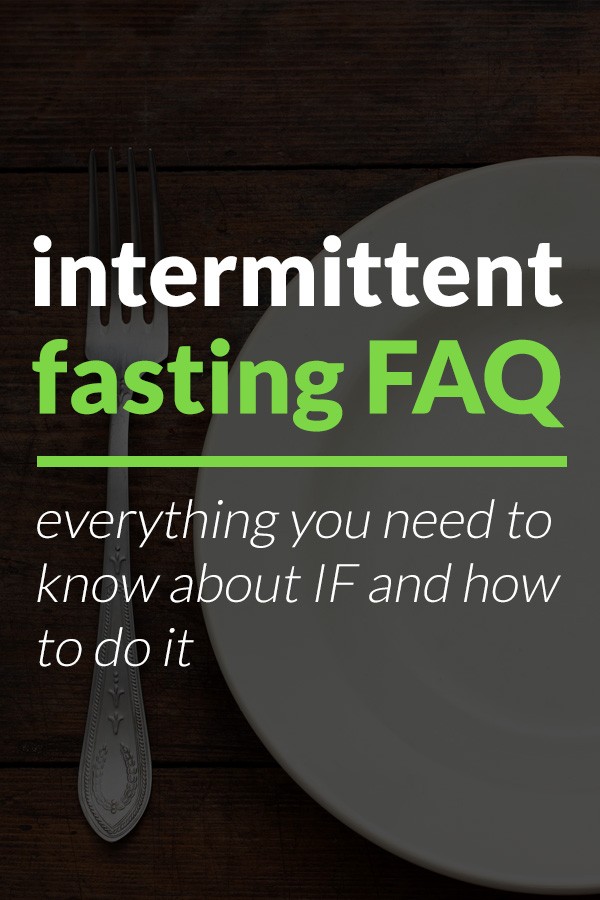

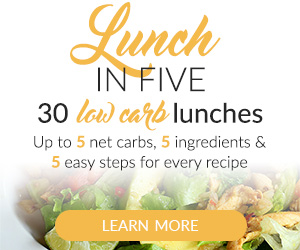
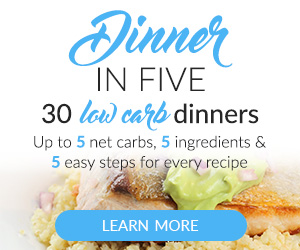
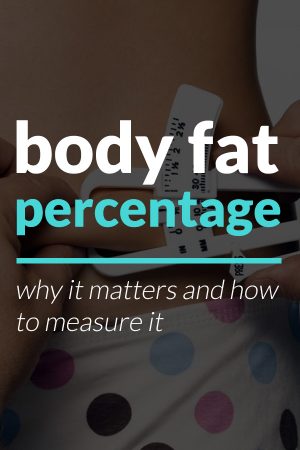
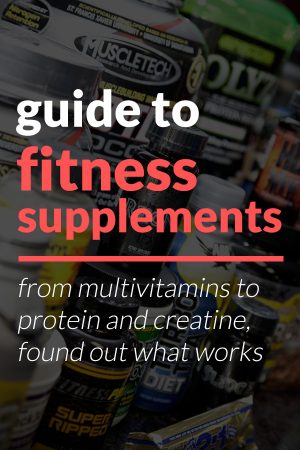
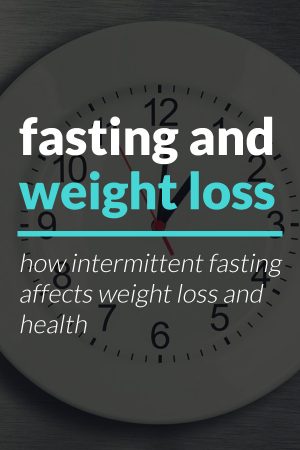

Hi, very new to Keto but interested in IF. My trainer has always told me I have to eat a good breakfast before my workouts or I won’t have enough energy. So , once my body adapts to IF I should be fine to work out?
You should always ask a doctor first before beginning a new diet but you should be absolutely fine! Many athletes use IF to their benefit.
I assume cream is not allowed, but what about putting MCT oil or coconut oil in your coffee during the fasting period?
MCT oil is still high in fat and calories and would definitely break your fast.
Question on coffee. I add sugar free syrup and 1/2 n 1/2 (40 c) to my coffee. Do I need to eliminate that for a Fast? I’m thinking of doing 16:8.
Sugar-free syrup might not affect your fast, but half and half will. Keep your coffee black during a fast 🙂
I am a trainer/ nutritionist and I’m giving cyclical Keto/ intermittent fasting a go for a solid month. I am trying to cut down on body fat to single digits within this time frame. Currently at 16.7% 193 lbs. I’m doing 16/8 monday through saturday and carb load on sunday. My only question is, can I have keto coffee during the fast? Coffee, coconut oil and grass fed butter? I feel like it won’t stop the fast since its quick absorbing, but it still may since it has calories. Been looking all over the place and getting mixed reviews. Thanks
Also, to add. I jog in the fasted state 3-5x a week and do HIIT 4-5x a week. Cardio is always in fasted state and HIIT or circuit training is in the pm.
We would say it definitely will break your fast. Butter coffee is usually around the 250 calorie mark and anything with calories will impact your body’s fasted/absorptive state. Hope that helped!
Thanks for the reply Vicky! Ok I get it. I’ll stick to plain coffee just fine. I also do fasted cardio at the end of the fast and then I eat my first meal. Also do HIIT in the evening. So since I am doing the keto diet, and I will be in ketosis, if I do fasted cardio while fasting, then technically I am burning 100% body fat??
That’s the goal! Everyone’s body is different so there isn’t always a clear yes or no answer.
I run every day. Would it be okay on the fasting days to add Nuun electrolyte tablets to my water? If not could you suggest an alternative?
I think that should be fine, as long as they’re sugar free!
Would it be okay to have sugar free jello during fasting hours if I absolutely needed to eat something with a medication I take?
I would rework your fasting hours around your medication. Anything you eat will break your fast. If you need to eat something for your medication, sugar-free jello wouldn’t count as appropriate food for that.
Ok, I guess I wouldn’t be able to fast then, it’s something I have to take 3 times a day. Thanks.
You can achieve your goals even without fasting! Just keep your carbs low and eat fat until full. You can do this 🙂
Hey there so I have been on a keto diet for two and a half months now. I have been doing empty stomach cardio low intensity for an hour to an hour and a half in the morning. My question is can I do high intensity interval training on an empty stomach and not worry about losing muscle while in ketosis? I used to do spin class for 45 minutes and I stopped it when I started Keto because I have been told that you will lose muscle. Any advice you could give would be greatly appreciated thank you
Curtis
Hey Curtis,
Working out fasted is the best way to tap into stored fat actually. The keto diet in general is very good for preventing muscle loss, even when eating at a deficit because the body is more readily burning fat (when keto-adapted) and goes to burn stored fat before breaking down muscle.
Being on keto and working out fasted and is one of the best ways to work out for results.
Can you tell me if this is adequate for intermittent fasting and this is my daily schedule at the moment: I am a Fly in Fly out worker away for three weeks at a time. The food offered at work is not great in nutritional content and options are very limited in range of fresh food options.
*Gym session beginning with an elliptical warm up for an intermediate level for ten minutes, then a circuit based weights and resistance training session for 30 mins 5 days per week. 2 rest days.
*Breakfast is a Protein, Snack replacement shake (Pea Protein Isolate), low carb, low cal, no artificial sweeteners at 378kj’s per serve
*Lunch is a chicken breast or piece of fish/tuna with loads of salad or vegetables
*An afternoon snack is sometimes a protein bar consisting of 520kj’s, 14.7gms protein, 3.5gms carbs, 1.5gms sugar
*Dinner is the same as breakfast
I consume approximately 2-3 litres of water per a day as I work in a very hot, tropical climate, 12 hour shifts for 21 days
Intermittent fasting in less about what you eat but when you eat it. I would try eating everything you’re eating now but in a 6-8 hour window.
Hello,
I have been reading a lot about IF and have many questions….but I’ve ALWAYS been told that not eating sends your body into ‘starvation mode’ which would make my body hang on to fat and store it. What am I missing /not understanding correctly? Thanks……I am really intrigued by this concept!!
Starvation mode is something that happens when your body is consistently starved of nutrients. For example, when you restrict your calories drastically and eat under 1200 or even 1000 calories a day, that’ll start to take a toll on your body.
Intermittent fasting doesn’t restrict calories, it simply dictates when you eat them. Fasting for a few hours is not going to send your body into starvation or panic. Your body will adapt to a new feeding schedule very quickly.
Hope that helped!
I am Keto adapted and on my second day of IF. My eating window ended last night at 7pm, it is now 230pm and I have yet to eat. I am not hungry despite having worked out at noon. Is there anything that suggests I need to eat right after my workout or is it OK to wait until the evening or when I am feeling hungry, thereby creating a longer fast? What if I cannot consume all the calories in one meal or before my eating window closes? Is that detrimental?
Thanks in Advance.
That’s a great question Christy!
Keeping a long fast is good but should not deprive you of calories and nutrients. If you want to make your fasts work long-term, you should start out with ~16 hour fasts and then push to 18 or so once you’re comfortable and your body has gotten used to it after a few weeks. The reason I say this is because your body is used to a certain schedule and breaking that schedule will make you perform worse overall without slowly adapting to it. Your energy levels will be low which will affect your thought processes and overall productivity (and chances to succeed). Remember, the goal is to be healthier and sharper – not the other way around.
Regarding not consuming your calories: it is simply not good because that’s malnutrition. Intermittent fasting is a change in schedule, not diet.
Schedule-wise: Eating all your calories in 1 meal is unrealistic. Eating all your calories in 2 meals is unlikely (at first). Try to have an 8 hour window with 2 big meals and a small 3rd meal and then slowly transition to 2 meals by increasing the size of the bigger meals and cutting out the smaller one. Do all of this gradually. There’s no reason to rush!
Good morning,
Which time would be the best to exercise?
I do mixed martial arts and I’m training to go pro in 2 years time. I do weight training in the morning between 7 and 9 and then every night from 6-8 I have technique training. should I eat before or after training in the morning?
And would I have enough energy to complete all my exercises?
Thanks,
Magda.
Hi Magda! The energy levels depend on the person, and you may start off with low energy while your body adapts to it’s new eating schedule. Once you’re used to intermittent fasting, you should have no problem completing all your exercising because you’re still eating the proper amount of calories your body needs.
I would try to eat after your training in the morning. That way you have the perfect window to eat all your calories before you start your technique training in the evening.
Remember that you can fast every day, or only some days! If you’re feeling very hungry, go ahead and let that day be a regular eating day. Be flexible!
Hope that helps!
Hi. I’m new to this whole thing but very interested… what’s difficult is that I work EARLY every day (between 6-7am) and then teach fitness classes almost every night (between 5:30-9pm). This makes IF planning kind of difficult because I need the energy to get through my day and teach my classes without getting hangry or shaky (I’m also a scientist and it’s REALLY hard to pipette when your hands are shaking). Do you have any suggestions on what kind of schedule could work for this? Skipping breakfast isn’t/doesn’t seem the best option for me because most days I don’t get to eat until 12:30pm anyway and I don’t know if I could go all morning without killing someone in the process! With that said, I also don’t want to teach my late night classes without something on my stomach because they are fairly high intensity and fainting while teaching=NOT GOOD. I really am interested in doing this though so would LOVE some insight on what may work best given my crazy schedule! THANK YOU!
Hi Katy! One of the benefits of intermittent fasting is teaching your body to recognize that being hungry is not an emergency! I had the same “hanger” issues in the mornings and couldn’t function or be polite before breakfast. The first few days fasting were hard, but eventually my body understood that, yes, it’s hungry, but it shouldn’t shut down and demand food. Food is coming! Your body will adapt.
I would suggest starting with an 8 hour feeding window. Maybe something like breakfast at 9am and last meal at 5pm? Coffee is your best friend while IF :). Since you wake up so early, your first meal an be earlier. As long as you’re in a fasted state for a good amount of hours, 16 in this case.
Also, you don’t need to fast every day! On the days you teach your class, maybe take it easy and eat if you really don’t feel up to it.
Let us know if this helped! Feel free to email us if you have more questions- good luck!